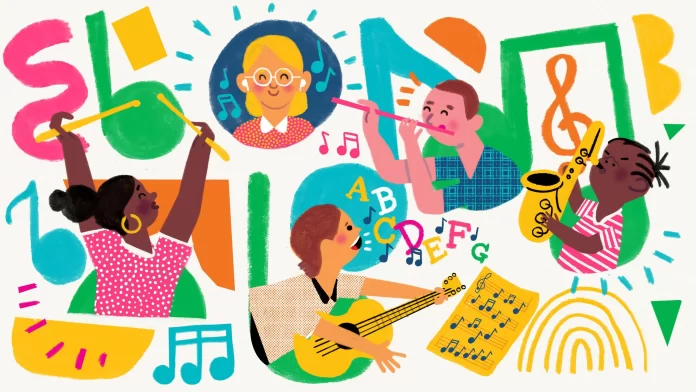In the ever-evolving world of education, music pedagogy has not remained static. Traditional methods of teaching music are being augmented and sometimes replaced by innovative approaches that cater to the diverse learning styles and needs of students in the 21st century. This article explores these novel methods in music education, emphasising their significance in fostering a more inclusive and effective learning environment.
Embracing Technology in Music Education
One of the most significant shifts in music pedagogy is the incorporation of technology. Digital tools and online platforms have revolutionised the way music is taught, practised, and understood. From apps that offer interactive theory lessons to software that allows for the composition and recording of music, technology has made learning more accessible and engaging. Virtual reality (VR) and augmented reality (AR) are also making their way into the classroom, providing immersive experiences that were previously unimaginable. These technological advancements are not only enhancing the learning experience but also preparing students for a digital world where music production and consumption are increasingly tech-driven.
Personalised Learning Paths
Another key development in music education is the focus on personalised learning paths. Every student has a unique set of skills, interests, and learning paces, and the one-size-fits-all approach is no longer deemed effective. Personalised learning involves tailoring lessons to meet individual student needs, using adaptive learning technologies, and providing choices in learning materials and methods. This approach ensures that students remain engaged, motivated, and are more likely to achieve their full potential in music learning.
Collaborative and Project-Based Learning
Music education is increasingly adopting collaborative and project-based learning models. These models emphasise teamwork, creativity, and practical application. Students work together on projects such as composing a piece, organising a performance, or even creating a music video. This not only enhances their musical skills but also develops important life skills like communication, problem-solving, and leadership. Collaborative learning environments also replicate real-world scenarios where musicians often work in teams, thus preparing students for future careers in music.
Cultural Diversity in Music Curriculum
There is a growing recognition of the importance of including diverse musical traditions and genres in the curriculum. This approach broadens students’ musical horizons and fosters an appreciation and understanding of different cultures. Integrating a wide range of musical styles, from classical to contemporary and from global traditions, ensures that students receive a well-rounded musical education and are exposed to a variety of influences and perspectives.
The Role of Music Tutors in Modern Music Education
In the landscape of modern music education, the role of a music tutor is increasingly pivotal. These educators are not just imparting musical knowledge; they are mentors, guides, and facilitators of learning. A music tutor today might use a blend of traditional and modern teaching methods, adapting to the needs and interests of each student. They might integrate technology into their lessons, encourage creative expression, and focus on building a strong foundational understanding of music. Becoming a music tutor in this dynamic field requires a passion for music, a dedication to teaching, and the flexibility to embrace new pedagogical methods.
Integrating Mindfulness and Well-being
Music education is also starting to integrate practices that support mental and emotional well-being. Mindfulness, relaxation techniques, and discussions about mental health are becoming part of music classes. This holistic approach acknowledges the stress and anxiety that can come with learning and performing music, and provides students with tools to manage these challenges.
Assessments and Feedback
The way students are assessed in music education is also changing. There is a shift from traditional exams and graded performances to more formative, ongoing assessments. Feedback is becoming more constructive and personalised, focusing on growth and development rather than just proficiency. This shift helps in creating a less stressful and more supportive learning environment.
Conclusion
The field of music education is undergoing a significant transformation. By embracing innovative approaches, educators are making music learning more inclusive, engaging, and relevant to the modern world. These changes are not just about adopting new tools or methods but about rethinking the essence of how music is taught and learned. As educators continue to explore and integrate these innovative approaches, the rhythm of learning in music education will continue to evolve, resonating with the needs and aspirations of today’s students.










